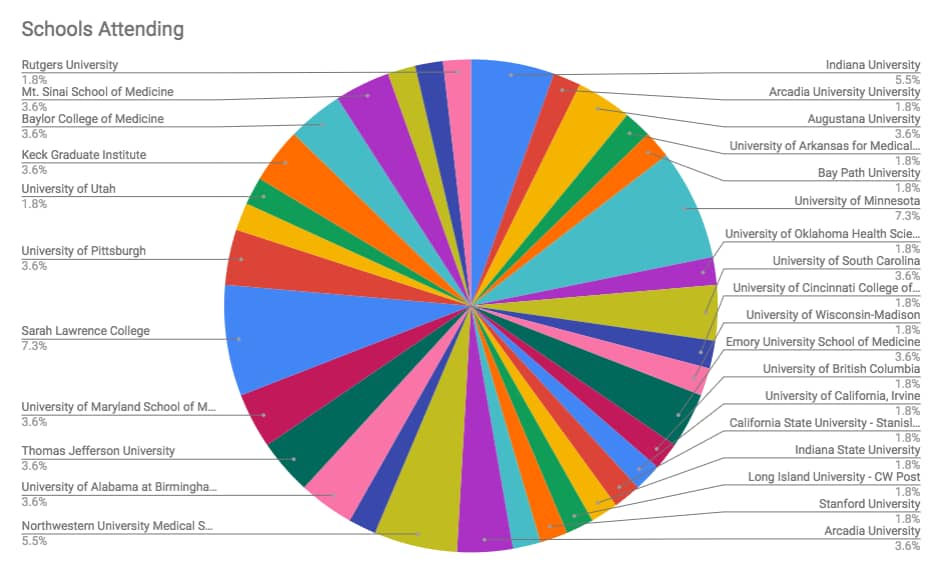
Currently, in August 2018, there are 43 accredited programs (here is the full list from The Accreditation Council of Genetic Counseling) in Canada and the United States. Incoming students from 28 of these schools took part in our survey. It’s also worth noting that 6 more schools are candidates for accreditation or have submitted a “Letter of Intent” to start a new program; these programs are located at the end of the ACGC list hyperlinked above.

National Matching Services Inc provided their own statistics for this first year of the North American genetic counseling programs using their service. There were 1328 total applicants who registered in the Match, which is reflective of how many students applied to programs. Out of these 1328 applicants, 557 withdrew or did not submit ranks, which means these students did not receive any interviews or opted out of the application process at this stage. The remaining 771 applicants were invited to interview(s). Finally, 402 of these 771 students were matched with a program, which is 52% of students who were offered interview(s). Therefore 31% of students who applied to a genetic counseling program were matched with one. Based on the 57 students who completed our survey, a large percentage of students matched with their first rank. This is displayed in the bar graphs above.



